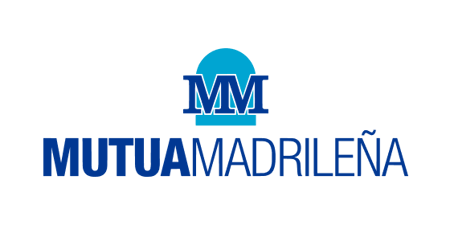
Client:Mutua Madrileña
Industry:Insurance
Region:Europe
Driving RPA Adoption through Teamwork

4 million
operations performed by robots
100
processes automated with the aim of exceeding 100 processes by 2021
85%
of the verification process will soon be automated
+75 K hr
being released
14,000
additional new hours created by robots
Client Overview
Mutua Madrileña is one of the largest insurance companies in Spain, providing a range of insurance services to over 13.5 million customers. Regularly rated as best valued by its customers, the company has almost 9,000 employees who offer car insurance, home insurance, health insurance, life insurance, and savings and investment products.
Founded in 1930, Mutua Madrileña has grown significantly over the past few years and in 2017, in order to sustain this growth, support operations and ensure customer service remained high, as well as keeping costs under control, the company’s leadership looked to automation technology for help.
Furthermore, the IT department was also driving a wider digital transformation within the company and needed a solution that would allow them to focus on this change without disrupting the business operations of the company itself.
The Operations team zeroed in on robotic process automation (RPA) as the right automation solution for their needs and set about identifying a suitable RPA provider. From the beginning of the process the team alongside the IT department identified UiPath as a strong contender for their project. UiPath technology was best suited to Mutua Madrileña’s systems, structure, and mainframe architecture and it was well-integrated into the Windows environment.
Importantly, given their growth, the UiPath Platform is easier to learn, use, and manage even by the business units and employees who have less coding and developer experience and knowledge. It was therefore decided to use UiPath for their RPA requirements and a robotics operations center (ROC) was established in 2019 to manage the RPA process and rollout throughout the organisation.
From the start, the ROC consisted mainly of women and was led by a woman, the Director of Operations. A strong emphasis was placed on collaboration and the workplace environment, with efforts made to reduce manual administrative work in favor of added value, quality work—something the ROC sought to reflect throughout the company.
A successful start
Before they could expand RPA throughout the company, the team needed a successful proof of concept (PoC) in order to demonstrate the effectiveness of RPA. In April 2017, they developed a PoC with the aim of testing the speed and effectiveness of the UiPath Platform.
They started by automating a process that involved contracting car insurance and within one week, they had already started automating this process. Concurrently, they identified 94 different processes within Operations that were ripe for automation—20 of which would be selected for automation in 2018.
From the business teams, there was a strong conviction that we needed RPA to help drive efficiencies and improve customer service. UiPath was the obvious choice for us given the ease of use of the platform, and the almost immediate results of the initial PoCs.
Nuria Martín de Soto • Manager, Robotics Operations Center (ROC)
The next step was to complete a pilot and four processes were identified for automation, with results being achieved almost immediately. Thereafter, they proceeded to continue automating the pre-identified processes and by December 2018, all 20 processes had been successfully automated.
Given the success of the pilot projects and the first year of RPA, Mutua Madrileña decided to formally adopt RPA and expand its use throughout the company. They began by formalising the ROC and expanded the team in early 2019, adding more team members with different project management skills and technology expertise.
Developing their own RPA skills
They also realized that they needed to grow their own in-house skillset rather than rely on third parties, and set about training their own staff on the UiPath Platform. Given the user-friendly nature of UiPath’s platform, as well as the wealth of guidance and training tools within UiPath Academy, this was achieved, and the company have a growing in-house team of RPA technicians and experts.
Today, the ROC’s mix of skills and operational knowledge allows it to both ‘think’ and ‘do’, with business analysts identifying processes that can be automated and technicians developing the RPA tools to perform the automation. The ROC also provides guidance and training to other departments and will support users within the various business areas throughout the lifecycle of the RPA initiative.
Mutua Madrileña supports the role of women in positions of responsibility and leadership and actively promotes their participation in deep technology areas such as RPA—and throughout the entire company from the top down. The ROC is led by and predominantly staffed by women, many of whom were there from its beginning and there are ongoing initiatives aimed at supporting females who wish to follow a career in deep technology, such as RPA.
By establishing a robust governance framework through the POC and working collaboratively with the various departments, Mutua Madrileña have experienced significant results and ROI from their automation journey.
The ROC has been critical to the success of RPA at Mutua Madrileña. The ROC team is very strong and collaborative and understand the work that the business and operations area do, further helping them to cut down on administrative, manual work.
Nuria Martín de Soto • Manager, Robotics Operations Center (ROC)
Proof in the numbers
By the end of May 2020, robots had performed four million operations with 100 processes automated, with the aim of reaching 125 processes by 2021. This has resulted in over 75,000 hours being released, allowing employees to concentrate on more value-added tasks.
Furthermore, an additional 14,000 hours of productivity were created, thanks to robots now performing tasks that were previously considered too expensive or complex to be performed by humans. Mutua Madrileña’s RPA journey has only just begun. The team are looking to expand the number and range of processes to be automated and are looking to integrate additional technologies to help them achieve this.
Specifically, they are looking to incorporate artificial intelligence (AI) and natural language processing (NLP) to help them handle the significant number of documents, as is typical for a large insurance company. Furthermore, they intend to leverage AI to help them understand customer emails and allow them to handle customer feedback and engagement better and quicker.
Furthermore, they intend to expand RPA into new areas. Overall, they aim to use RPA to reduce workload on their employees, especially rules-based, repetitive tasks, allowing them to provide better service for their customers.
Related case studies
Ready for your own case study?
Speak to our team of knowledgeable experts and learn how you can benefit from agentic automation.





